Aftermath of Israeli air strikes in central Beirut
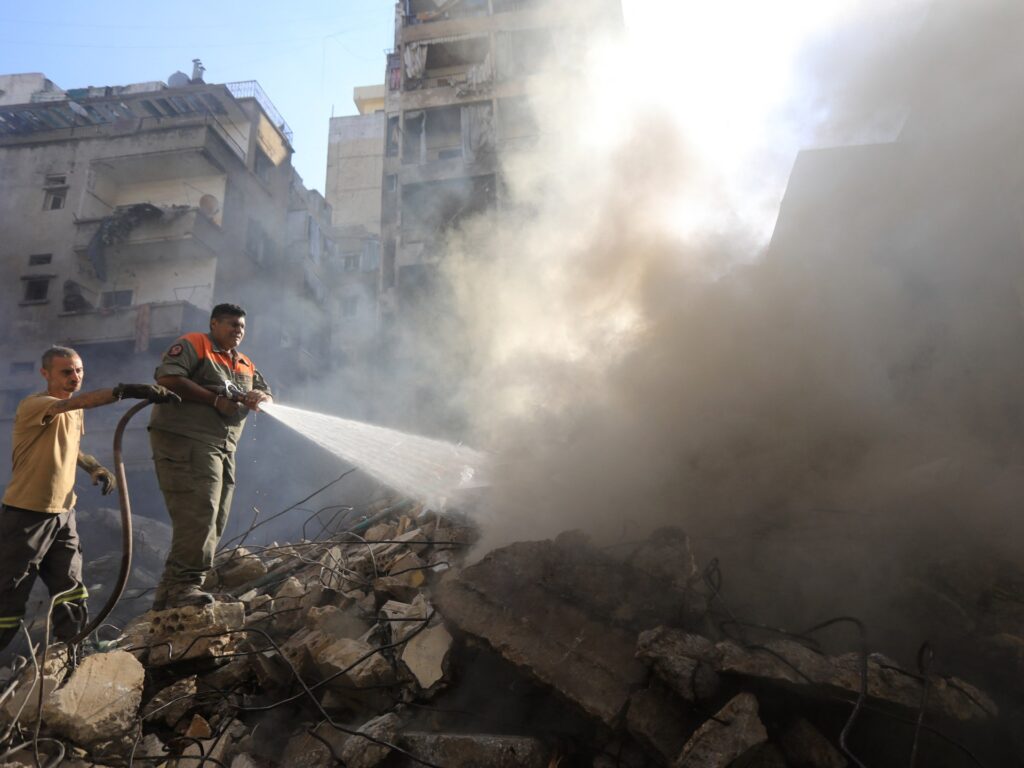
At least 22 people were killed and 117 others wounded in Israeli air strikes in central Beirut on Thursday, Lebanon’s Ministry of Public Health said, in the third such attack on the centre of the Lebanese capital since Israel escalated its bombing campaign last month. Reporting from Beirut, Al Jazeera’s Laura Khan said many people who had been displaced from southern Lebanon in recent weeks had sought shelter in the capital. “Many people who had fled southern Lebanon had found shelter here, and it’s just becoming re-traumatising, unpredictable and dangerous,” Khan said. The injured were brought to local hospitals, which sent out a warning asking people not to donate blood because they were already overwhelmed by the number of casualties and the inflow of family members. Al Jazeera correspondents on the ground said a family of five people that had fled southern Lebanon was killed alongside three relatives who were hosting them. The attacks, which came without warning, mark the third time since Israel expanded its campaign on Lebanon in late September that its bombs have hit outside Dahiyeh, a southern suburb that has seen near-daily air raids in recent weeks. A Lebanese security source, without giving further details, said a “Hezbollah figure” was targeted after a series of killings of top officials in the Iran-aligned movement. Adblock test (Why?)
Israel attacks UN peacekeepers in Lebanon: Why it’s such a big deal
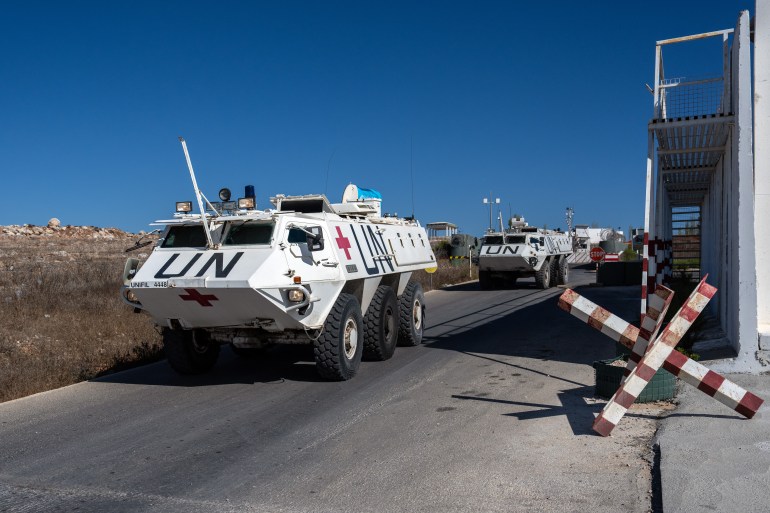
The Israeli military has fired on the United Nations peacekeeping force in Lebanon twice in less than 48 hours, the UN says. Israeli forces repeatedly fired at a guard tower at the headquarters of the UN Interim Force in Lebanon (UNIFIL) on Thursday, injuring two members of the force, and again fired at a watchtower, injuring two more peacekeepers, on Friday. It is almost unheard of for a UN member state to take aim at a UN peacekeeping force, so how significant are these incidents in the unfolding war in Lebanon? UNIFIL armoured personnel carriers depart from a base to patrol the Lebanon-Israel border on October 5, 2024 in Marjayoun, Lebanon [Carl Court/Getty Images] What happened? On Thursday morning, Israeli forces used a Merkava tank to fire at an observation tower belonging to UNIFIL in Naqoura, a small border-area town in southern Lebanon where UNIFIL has been headquartered since 1978. Two Indonesian peacekeepers were directly hit, causing them to fall. “The injuries are fortunately, this time, not serious, but they remain in hospital,” a UN statement issued on Thursday read. The statement added that on Wednesday, Israeli soldiers had “deliberately fired at and disabled” the monitoring cameras at UNIFIL’s headquarters. On Friday, UNIFIL released a second statement saying two more peacekeepers had been injured when two explosions occurred close to an observation tower. One was taken for treatment at a hospital in the Lebanese city of Tyre while the other was being treated in Naqoura. Israel’s attacks were condemned by members of the international community, including Indonesia, Italy, France, Spain, Ireland, Turkey, the European Union and Canada. What is UNIFIL? UNIFIL is a peacekeeping force in Lebanon originally set up by the UN Security Council in March 1978 after Israel first invaded Lebanon in what became known as the South Lebanon Conflict. In 1978, Israel deployed its troops along the border with Lebanon after Palestine Liberation Organization members entered Israel from Lebanon by sea. UNIFIL was established to oversee the Israeli withdrawal from Lebanon and to restore peace and security in the area. After a 34-day war in Lebanon between Hezbollah and Israel in 2006, in which 1,100 Lebanese people were killed, UNIFIL’s mandate was expanded to monitor the cessation of hostilities and support Lebanese armed forces deployed throughout southern Lebanon. As of September 2, 10,058 UNIFIL soldiers are deployed in Lebanon. They come from 50 countries. The largest number of UNIFIL peacekeepers – 1,231 – come from Indonesia. Italy, India, Nepal and China also contribute a large number of soldiers to the peacekeeping force. How common is it for UN peacekeepers to be harmed? From 1948 to the end of August 2024, 4,398 UN peacekeepers on missions all over the world have been killed. Of these fatalities, 1,629 were due to illness, 1,406 were caused by accidents, 1,130 by malicious acts and 233 were due to “other reasons”, according to data from the UN. UNIFIL is the most dangerous of the peacekeeping missions, having suffered the most casualties. In its 46 years, 337 peacekeepers have been killed. It is followed by the UN Multidimensional Integrated Stabilization Mission in Mali, which has suffered 311 fatalities. The highest number of peacekeeper fatalities in one year took place in 1993 when 252 peacekeepers died during missions in Somalia, Bosnia and Herzegovina, Cambodia and other locations. In 2010, the second highest number of fatalities took place when 173 peacekeepers were killed. They included three peacekeepers with the African Union-UN Mission in Darfur during confrontations with unknown attackers. In the same year, 43 members of the UN Stabilization Mission in Haiti (MINUSTAH) died on January 12 in an earthquake in Haiti. Ten other MINUSTAH personnel died in 2010 in “acts of violence”, the UN website reported. In 2017, the UN said an attack on peacekeepers in the Democratic Republic of the Congo was suspected to have been carried out by the Allied Democratic Forces armed group. That attack killed 14 Tanzanian peacekeepers and injured 44. What is the legal position on targeting UN peacekeepers? The deliberate targeting of UN missions amounts to a war crime, observers said. “Under the laws of war, UN personnel involved in peacekeeping operations, including armed members, are civilians, and deliberate attacks against them and peacekeeping facilities are unlawful and amount to war crimes,” a report from Human Rights Watch (HRW) explained. HRW cited Article 8(2)(b)(iii) of the Rome Statute, which established the International Criminal Court in The Hague. It lists the intentional targeting of humanitarian and peacekeeping missions as war crimes. The UN statement that reported Thursday’s attack said not only was the deliberate attack a violation of international law but also a violation of UN Security Council Resolution 1701. After Israel’s attack on Friday on the UNIFIL headquarters, the UN said: “This is a serious development, and UNIFIL reiterates that the safety and security of UN personnel and property must be guaranteed and that the inviolability of UN premises must be respected at all times. “Any deliberate attack on peacekeepers is a grave violation of international humanitarian law and Security Council resolution 1701 (2006).” UN peacekeepers from a Spanish brigade of the United Nations Interim Force in Lebanon (UNIFIL) clean their weapons at their base on August 16, 2024 in Kafarkila, Lebanon [Chris McGrath/Getty Images] Has Israel attacked UN peacekeepers before? Military analyst Elijah Magnier told Al Jazeera that the recent incident was not the first time UNIFIL had come under fire from Israel. In 1987, an Israeli tank squad opened fire on a village where a UNIFIL command post was located, killing an Irish peacekeeper. In 1996, Israel shelled UNIFIL’s Fijian battalion in southern Lebanon’s Qana. More than 120 Lebanese civilians were killed and about 500 injured. Four UN soldiers were also injured. In late November 2023, Israeli forces fired at a UNIFIL patrol close to Aitaroun in southern Lebanon, but no peacekeepers were injured. Magnier said the recent attacks were happening “because Israel needs to go through the UNIFIL position in Naqoura and start the invasion
North Korea accuses South Korea of sending propaganda drones to Pyongyang
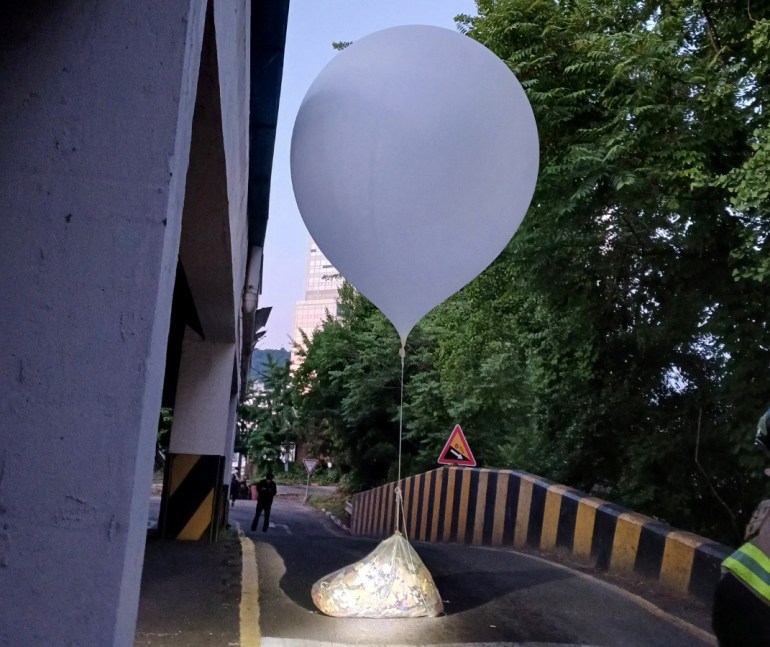
North Korea says flights are an ‘irresponsible and dangerous provocation’ as Seoul denies sending drones. North Korea claims South Korea sent unmanned drones carrying propaganda leaflets to Pyongyang three times and threatened to respond with force if the flights happened again. In a statement on Friday, North Korea’s Ministry of Foreign Affairs said the drones were detected in the night skies of Pyongyang on October 3 and Wednesday and Thursday this week. The ministry accused South Korea of violating its “sacred” sovereignty and threatening its security, describing the flights as an “irresponsible and dangerous provocation that may cause an armed conflict and lead to a war between the two sides,” the ministry was quoted as saying by the state news agency KCNA. The statement added that North Korean forces will prepare “all means of attack” capable of destroying the southern side of the border and the South Korean military. “The safety lock on our trigger has now been released,” the Foreign Ministry said. A balloon believed to have been sent by North Korea, carrying various objects including what appeared to be rubbish, is pictured in Incheon, South Korea, June 2, 2024 [Yonhap via Reuters] South Korea’s Defence Minister Kim Yong-hyun said they had not sent any drones into the North. When asked about North Korea’s claim during a parliamentary audit late Friday, he told lawmakers, “We have not done that.” South Korea’s Joint Chiefs of Staff said it could not confirm the North’s accusations, but also referred in its statement to Pyongyang’s practice of sending balloons into South Korean airspace, with bags of rubbish attached. In its statement, South Korea’s Joint Chiefs of Staff said it “cannot confirm the truth of North Korea’s claims”, adding: “All responsibility for the recent series of events” lies with Pyongyang. It cited “despicable, low-grade and internationally embarrassing acts of filth and garbage balloons and other provocations.” More balloons were being sent on Friday, it said. Since May, North Korea has sent thousands of balloons carrying paper waste, plastic and other rubbish in what it said was in retaliation against South Korean activists who flew balloons with anti-North Korean propaganda leaflets across the border. South Korea’s military has responded to the North’s rubbish balloons by using loudspeakers at the border to broadcast propaganda and K-pop. The new balloons come as North Korea’s army said it would “permanently shut off and block the southern border” with South Korea on Wednesday. The army added that the defence structures would be built to deal with the South’s and US forces’ “confrontational hysteria.” Adblock test (Why?)
‘Ties can’t be repaired unless…’: India dismisses Canadian PM Trudeau’s remarks on meeting PM Modi in Laos
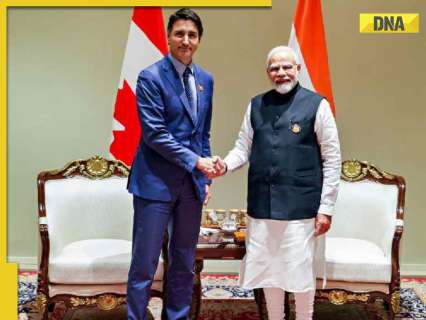
India refutes Canadian PM Justin Trudeau’s claim of discussing Canadian safety with PM Modi.
Sharjah-bound Air India Express flight with 150 onboard safely lands in Trichy after reporting…

Air India Express flight made an emergency landing at Trichy airport after reporting a hydraulic failure.
Vladimir Putin meets with Iranian President Pezeshkian to celebrate ‘very close’ relationship
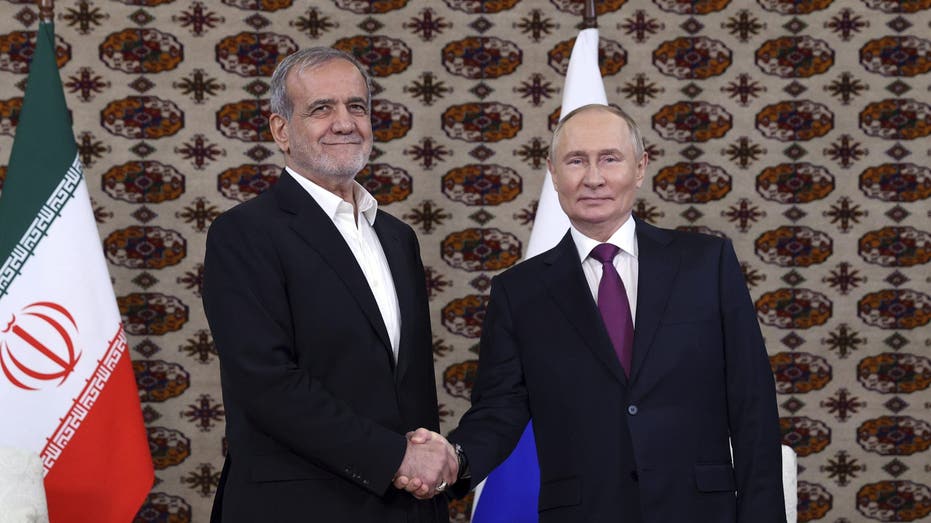
Russian President Vladimir Putin met with Iranian President Masoud Pezeshkian on Friday, hailing the “very close” relationship between Russia and Iran. The meeting comes as Iran braces for an Israeli response to its missile attacks on Tel Aviv earlier this week. “We are actively working together in the international arena, and our assessments of events taking place in the world are often very close,” Putin said, as reported by Russia’s state news agency TASS. The cooperation between the two sanctioned nations has sparked renewed alarm in the West. U.S. officials have said Tehran is supplying Moscow with ballistic missiles to use in its fight against Ukraine. In return, Russia is suspected of providing Iran with sensitive nuclear technology – as it draws nearer in its capabilities to being a fully nuclear-armed state. “Russia is the world’s largest nuclear power. It holds an advantage even with the United States when it comes to nukes, especially in the tactical warhead realm and, obviously, it can share,” Rebekah Koffler, former senior official in the U.S. Defense Intelligence Agency (DIA) and author of “Putin’s Playbook,” told Fox News Digital. “Nuclear is not the only capability – strategic capability of concern – there’s also cyber and space weapons,” she said. Former President Donald Trump launched the U.S. Space Force in August 2019 to counter Russia and China’s capabilities in space. “Russia has, again, one of the world’s most robust counter space weapons and has a developed, mature space warfare doctrine,” Koffler went on. BIDEN, NATO HEAD CLAIM A STRONGER OBAMA RESPONSE TO CRIMEA INVASION MAY HAVE PREVENTED UKRAINE WAR “Nuclear weapons do not work without satellites. Whatever Iran has right now, however close they are in terms of developing the actual capability, can’t do anything without a satellite network. You can’t do targeting, you can’t do command and control, missile warning, all that stuff, you cannot negate the adversaries command and control capability, and that is what Russia can, and probably has, to some extent, provided to Iran, although there’s no conclusive analysis.” During the gathering, Putin reportedly backed up Pezeshkian’s condemnations of Israel. Pezeshkian said that Israel must “stop killing innocent people” and blamed the U.S. and European Union for supporting Israel in the war. The pair met on the sidelines of an international conference in Turkmenistan. Pezehskian agreed to visit his counterpart in Russia, according to state-run RIA news agency. “Economically and culturally, our communications are being strengthened day by day and becoming more robust,” Pezeshkian was cited as telling Putin by Iran’s official IRNA news agency. “The growing trend of cooperation between Iran and Russia, considering the will of the top leaders of both countries, must be accelerated to strengthen these ties,” he said. NORTH KOREA TROOPS NOW FIGHTING FOR RUSSIA IN UKRAINE, SEOUL SAYS The meeting represents a stark reorienting for Putin, who in the past has been the “most pro-Israel president in Russian history,” according to Koffler. But both Russia and Iran face steep sanctions from the U.S. Around 20% of the Jewish population in Israel are Russian expatriates. “Jewish people, traditionally, are very smart, highly educated, highly employable. And with Russia having a demographic issue, Putin ideally wants those people, or their children or their grandchildren to come back to Russia,” Koffler explained. The Israeli Prime Minister was initially resistant to providing arms to Ukraine when Russia invaded. But the Pentagon tapped into a little-known stockpile of U.S. weapons stored in Israel for its defense to help fill Ukraine’s request for artillery last year. The U.S. has offered Ukraine over $100 billion in arms assistance over the course of the war. Russia views Israel, which is also armed by U.S. supply, as squarely in the camp of the Americans. “It’s not Iran that pushed Russia. Iran has no influence. Russia has always been the top dog in that relationship,” said Koffler. “But it’s Russia that oriented itself towards Iran as a result of the Biden administration’s policies.”
From Silver Nakkashi-work peacock figurine to Patola scarf: PM Modi presents special gifts to world leaders in Laos

Prime Minister Narendra Modi, during his two-day visit to Vientiane Laos, attended the 21st ASEAN-India summit and the 18th East Asia summit and held meetings with several global leaders.
Texas students can now see which state public universities would accept them before they apply
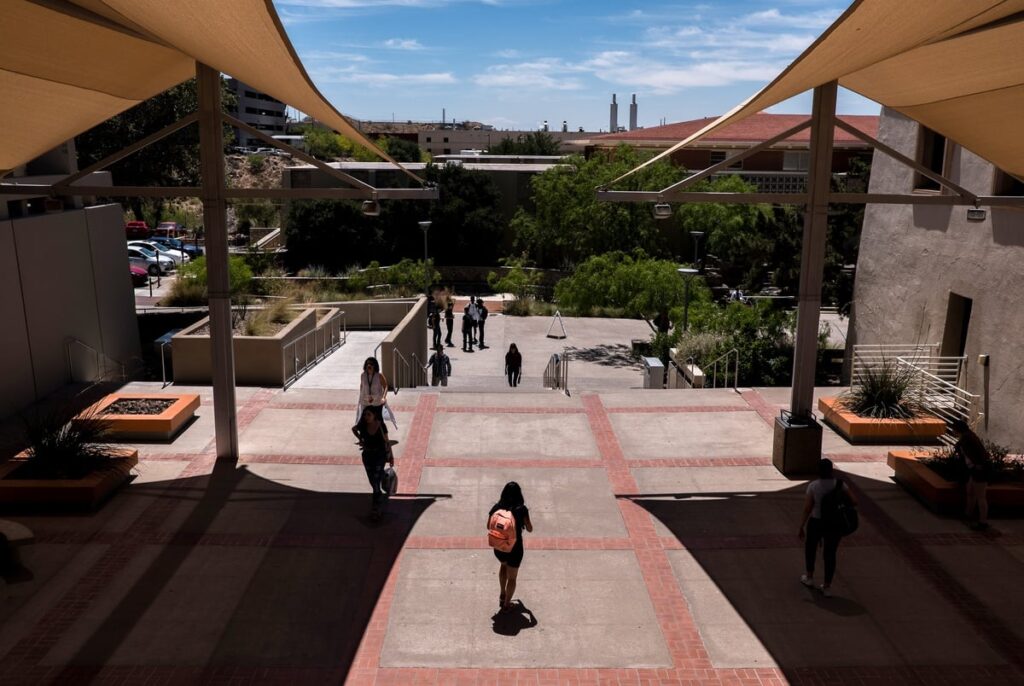
Students can enter their class rank, grade point average, and standardized test scores to get a list of universities to which they’d be admitted.
‘Congress’ loss in Haryana unexpected but…’: Former CM Ashok Gehlot’s big statement ahead of Rajasthan by-polls

Ashok Gehlot said the party president Mallikarjun Kharge and the Leader of the Opposition in Lok Sabha Rahul Gandhi called a meeting. It was decided that the party should get to the bottom of what actually happened so they could form a team.
Galveston man drops lawsuit against women who allegedly helped his ex-wife get an abortion

The case was filed by Jonathan Mitchell, the anti-abortion lawyer who designed Texas’ 2021 abortion ban that is enforced through private lawsuits.
